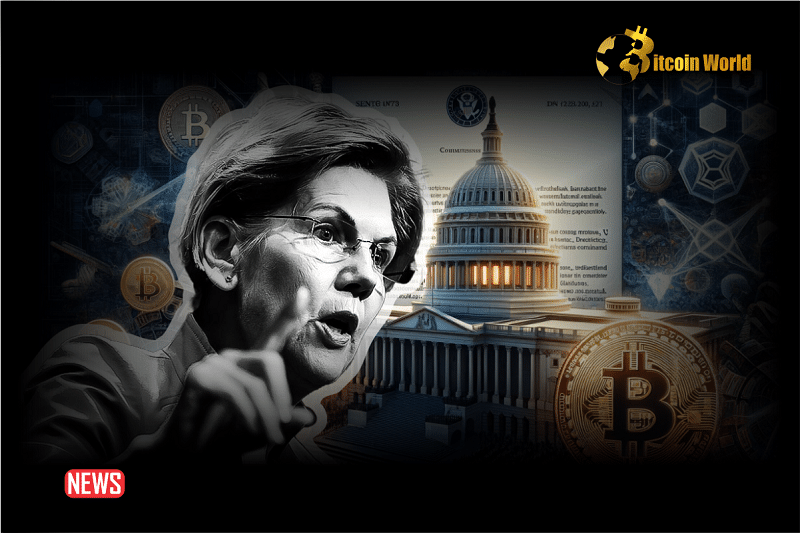
- US Senator Elizabeth Warren criticizes the SEC for approving Spot Bitcoin ETFs, expressing concerns about deeper integration of crypto into finance.
- Warren emphasizes the need for strict anti-money laundering rules and proper regulatory frameworks for cryptocurrencies.
- Despite positive market reactions and a surge in Bitcoin’s price, Warren remains cautious, highlighting risks of digital theft and financing illicit activities.
In a stance that echoes her consistent criticism of the cryptocurrency sector, US Senator Elizabeth Warren has openly criticized the Securities and Exchange Commission (SEC) for its recent approval of Spot Bitcoin ETFs.
Taking to social media, Senator Warren expressed concerns about integrating crypto more deeply into the fabric of everyday finance, stressing the need for stringent enforcement measures.
Warren’s Worry: A Call For Tighter Regulation
Senator Warren’s disapproval hinges on two main points: legality and policy. Her argument suggests that the SEC’s decision may have overlooked critical aspects of law and policy concerning Bitcoin ETFs.
She advocates for the imposition of fundamental anti-money laundering protocols, especially in the wake of cryptocurrencies’ deeper integration into the financial system.
See Also: Cardano (ADA) Surged In Price Following The Bitcoin ETF Approval
According to Warren, this integration should not proceed without a corresponding advancement in regulatory frameworks.
January 10 marked a significant milestone in the world of cryptocurrency with the SEC’s green light for pending Spot Bitcoin ETF applications.
This move not only amplifies Bitcoin’s accessibility in the realm of everyday banking but also sets a precedent for future ETFs of other major cryptocurrencies like Ethereum and Ripple‘s XRP.
Despite the generally positive reaction from the market and a noticeable uptick in Bitcoin’s price during the first day of Spot ETF trading, governmental responses have been mixed.
Warren, known for her cautious approach towards cryptocurrency, has been particularly vocal about her concerns.
She emphasizes the risks associated with digital theft and the use of cryptocurrencies in financing illicit activities.
Her recent social media posts reaffirm her stance against the SEC’s approval of Bitcoin ETFs.
A Ripple Effect: The Market’s Response To SEC Approval
Following the SEC’s approvals on Wednesday, the trading of Spot Bitcoin ETFs commenced the next morning, involving 11 asset firms like BlackRock, Fidelity, and others.
The trading volume for these products exceeded Bloomberg’s initial expectations of $4 billion, reaching a noteworthy $4.5 billion on the first day alone. In the first hour of trading, the ETFs recorded a massive $1.74 billion.
This influx of investment vehicles into the market, backed by well-known asset management firms, has attracted a new wave of investors.
The performance of BlackRock’s iShares Bitcoin Trust, in particular, has been a focal point of interest.
Bitcoin’s trading volume surged by nearly 10% in the last 24 hours, with its price experiencing a significant rise, momentarily surpassing $48,000 after the market opened.
However, Warren remains wary. She has consistently opposed the broader integration of crypto into the financial system, pointing out the potential risks and the need for robust regulatory measures.
Her concerns highlight the ongoing debate over the balance between innovation in the financial sector and the need for consumer protection and financial stability.
The SEC’s approval of Spot Bitcoin ETFs marks a significant shift in the cryptocurrency landscape.
While this move is celebrated by many as a step towards mainstream adoption and investor accessibility, it also underscores the growing need for regulatory clarity and consumer protection in the rapidly evolving digital asset market.
As the conversation continues, figures like Senator Warren play a crucial role in shaping the future of financial innovation and regulation.
The post Elizabeth Warren Criticizes SEC’s Decision On Spot Bitcoin ETFs appeared first on BitcoinWorld.














